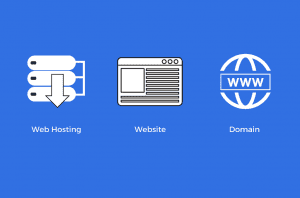A website audit is a comprehensive evaluation of a website’s performance, structure, content, and overall health.
It involves analyzing various aspects such as website speed, user experience, design, functionality, SEO elements, security, and adherence to industry standards. Regular website audits are crucial for maintaining a high-quality online presence and ensuring optimal user satisfaction.
By conducting periodic audits, businesses can identify and rectify issues that may be hindering their website’s performance, visibility, and user engagement. This proactive approach helps enhance the website’s functionality, user experience, and search engine rankings, leading to better online visibility, increased traffic, and improved conversion rates.
In a rapidly evolving digital landscape, website audits serve as essential tools for staying competitive and ensuring that a website remains effective, secure, and aligned with current best practices.
In addition to evaluating technical and performance-related aspects, website audits also delve into the content and marketing strategies implemented on the site. They assess the relevance and accuracy of the content, its alignment with the target audience, and its ability to effectively convey the intended message.
Moreover, website audits often encompass an in-depth analysis of the site’s analytics data, enabling businesses to track user behavior, identify trends, and make informed decisions to optimize their online presence.
The importance of regular website audits cannot be overstated, as they offer several benefits:
1. Performance Optimization
Website audits help identify technical issues that might be affecting the website’s speed, responsiveness, and overall performance. These issues can include slow loading times, broken links, or inefficient code. By addressing these problems, you can provide a better user experience and potentially improve your website’s search engine rankings.
2. User Experience Enhancement
Audits evaluate the user-friendliness of a website’s design and navigation. By identifying areas where users might encounter difficulties or confusion, you can make necessary improvements to enhance the overall user experience, which can lead to increased engagement, longer time spent on the site, and higher conversion rates.
3. SEO Improvement
Regular website audits can reveal SEO-related issues such as duplicate content, missing meta tags, improper keyword usage, and other factors that may affect the website’s search engine visibility. By addressing these issues, you can improve your website’s chances of ranking higher in search engine results pages (SERPs).
4. Content Relevance and Quality
Audits assess the relevance, quality, and accuracy of the website’s content. Outdated or irrelevant content can negatively impact user engagement and SEO. Regular audits help ensure that your content remains up-to-date and aligned with your target audience’s needs.
5. Security and Compliance
Website audits can identify potential security vulnerabilities or compliance issues, such as outdated software, improper data handling, or inadequate privacy policies. Addressing these concerns helps protect both your website and your visitors’ sensitive information.
6. Conversion Rate Optimization
Audits can uncover elements of the website that might be hindering conversion rates, such as unclear calls-to-action or suboptimal landing pages. By optimizing these aspects, you can increase the likelihood of visitors taking desired actions, such as making a purchase or filling out a contact form.
7. Competitive Edge
Regular website audits allow you to stay current with industry best practices and emerging trends. This knowledge can help you maintain a competitive edge by adapting your website to meet changing user expectations and technological advancements.
Conclusion
In conclusion, a website audit is a thorough evaluation of a website’s performance, structure, content, and overall functionality. It plays a crucial role in ensuring that a website remains competitive, user-friendly, and effective in achieving its goals.
Regular website audits offer numerous benefits, including improved performance, enhanced user experience, better search engine visibility, optimized content, strengthened security, and increased conversion rates. By conducting these audits on a consistent basis, website owners can stay ahead of potential issues, make informed improvements, and provide a positive online experience for visitors. In the ever-evolving digital landscape, website audits are an indispensable tool for maintaining a successful online presence.
Get connected with SPARK Services to start your website audit journey!
Share this:
- Click to share on Facebook (Opens in new window) Facebook
- Click to share on X (Opens in new window) X
- Click to share on LinkedIn (Opens in new window) LinkedIn
- Click to share on Reddit (Opens in new window) Reddit
- Click to share on Pinterest (Opens in new window) Pinterest
- Click to print (Opens in new window) Print




